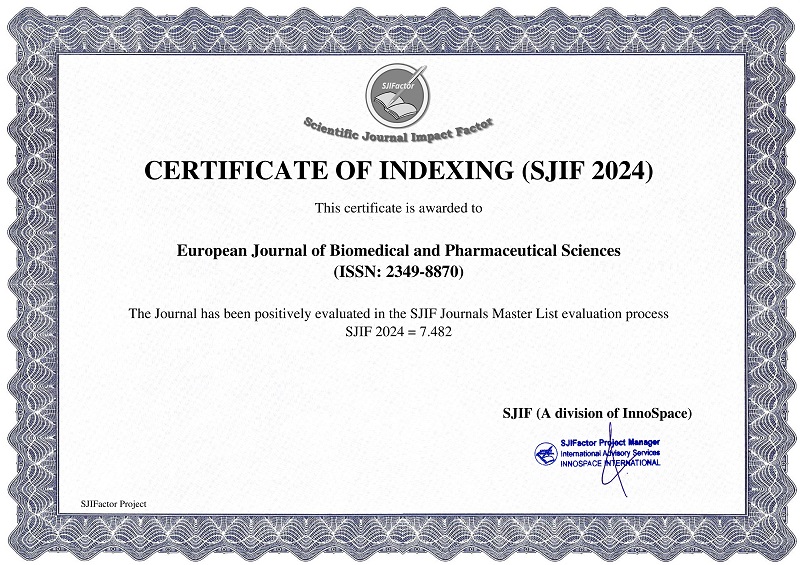THE EFFECT OF ECT-INDUCED ALTERED BEHAVIOR ON SPATIAL JUDGMENT AND MENTAL ALERTNESS IN WISTAR RATS
*Olorunfemi O. J., Asara Azibalua A. and Igwedibia C. P.
ABSTRACT
The study investigated the effect of electro-convulsing therapy (ECT) –induced altered behavior on spatial judgment and mental alertness. Albino wistar rats used were grouped into four groups; control groups treated with saline water as vehicle, mild shock group (2.5mA ECS), high shock group (4.0mA ECS) and Cerebrex drug group (100mg/kg). Prior to the experiment, the rats were exposed to different trials using Barnes maze test, beam maze test, navigation maze test, and elevated plus maze test. The behavioral tests were performed in different trials and altered behavior was clearly exhibited in all the tests; such as Barnes maze (inability to locate the escape hole), beam walk (increased time to walk across the beam), navigation maze (inability or prolonged time to locate the exit hole) and elevated plus maze ((decreased total time spent in the open/close arms). Statistical analysis was performed using IBM-SPSS-version 22.0. The descriptive characteristics were expressed as means ± sem. The repeated measures of ANOVA and Post-Hoc analyses were used in the comparison of control groups with Mild Shock, High Shock, and Cerebrex groups respectively. Results obtained from the study showed that Mild and High shock had negative effect on cognitive ability, motor coordination, spatial judgment and mental alertness and it also increased anxiety in rats. However, Cerebrex had had a less pronounce effect of cognitive ability, spatial judgment and anxiety but had a positive effect on motor coordination. In conclusion, this study suggested the possibility of ECT could have a profound interference on motor response, spatial judgment and mental alertness in rats.
Keywords: ECT, Cerebrex, spatial judgment, mental alertness, albino wistar rat, maze, shock.
[Full Text Article]
[Download Certificate]


 Impact Factor : 8.181
Impact Factor : 8.181 






